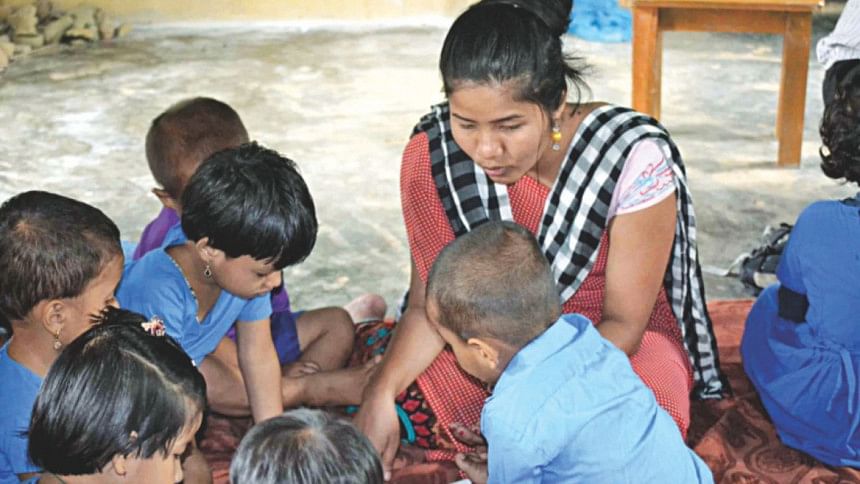Covid-19 has pushed 62% 'ethnic minority' in plains into extreme poverty: survey

The Covid-19 pandemic has pushed nearly 62 percent ethnic minority people who live in plains below extreme poverty line, according to a survey of Indigenous People's Development Services (IPDS).
Many of those who live in the plains are workers with no job security. They are usually either daily wage earners, beauty parlour workers, RMG workers, domestic help, drivers and salespersons.
Sanjeeb Drong, president of IPDS, presented the findings of the survey titled "Impacts of Covid-19 on the lives of indigenous people living in the plains of Bangladesh" at a webinar today.
The IPDS organised the webinar titled "Consultation with the Media on Covid-19 Pandemic and the situation of Indigenous People in the Plain Land, Bangladesh".
The survey supported by Minority Rights Group Europe, also showed that 92 percent "ethnic minority" people (18,40,000 of the total 20 lakh population) have faced a reduction in their income due to the pandemic. Twenty percent of those surveyed have said they are receiving partial payment.
Among those who live in urban areas for jobs, 60 percent have been facing problems in paying rent and other dues forcing many to leave the city and move to their villages.
The study also observed that at least 5,00,000 indigenous people have become "new poor" people due to the closure of various institutions and loss of private jobs. The crisis has hit Garo migrants the hardest.
More than 60 percent respondents said they did not receive any relief or assistance at the beginning of the epidemic from the government or NGOs.
IPDS collected the data from 1,205 families of 35 ethnic groups from 28 districts in the country through face to face interview, phone calls and emails.
The survey recommended that special financial packages should be provided to the families of those living in the plains.
Those who lost their jobs or are uncertain of their future or fear salary cuts should be given a special package consisting of 50 percent grants and 50 percent long-term loans against low-interest rates.
It also recommended providing part-time jobs for at least 10,000 youths so that they can sustain for the next six to 12 months and providing financial support to almost 5,000 beauty parlour workers who are mostly unemployed now.
Zakir Hossain, President, Nagorik Uddyog, a national level human rights and development organisation, said "ethnic minorty" people have been selling crops in advance and taking loans from money lenders against high interest in order to cope with the Covid-19 crisis.
Zakir also emphasised on ensuring long-term social security for the people living in the plains and stressed on collecting upazila-wise segregated data of the beneficiaries for helping them financially.

 For all latest news, follow The Daily Star's Google News channel.
For all latest news, follow The Daily Star's Google News channel. 



Comments